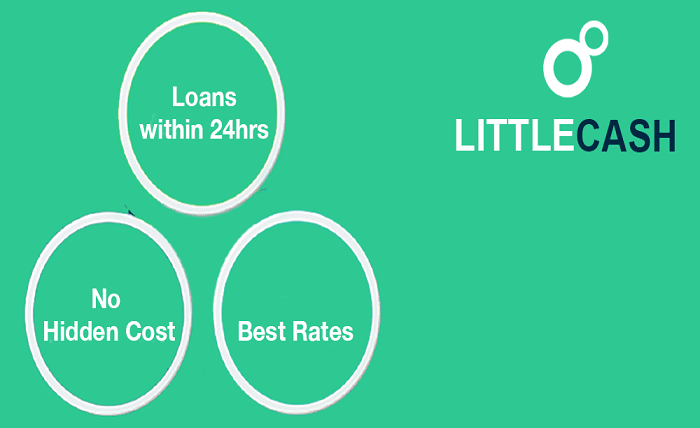Little Cash: Making the Most of Your Finances

In a world where financial stability plays a crucial role, many individuals find themselves in search of effective strategies to make the most of their limited funds. This article aims to provide valuable insights and tips on managing your finances when you have little cash. Whether you’re looking to save, invest, or navigate through challenging financial times, this guide will offer practical advice to help you achieve your goals.
Understanding Your Financial Situation
Before diving into any financial strategy, it is essential to have a clear understanding of your current financial situation. Evaluate your income, expenses, debts, and any assets or savings you may have. This assessment will serve as the foundation for building a stronger financial future.
Creating a Budget
One of the most effective tools for managing your finances is creating a budget. Start by listing all your sources of income and categorizing your expenses. Identify areas where you can cut back and allocate funds towards savings and investments.
Minimizing Expenses
Reducing expenses is a key aspect of stretching your limited funds. Evaluate your expenses and identify areas where you can make cost-effective changes. Consider cutting back on unnecessary subscriptions, dining out less frequently, and finding creative ways to save on utilities.
Maximizing Income
While minimizing expenses is important, finding ways to maximize your income can have a significant impact on your financial situation. Explore opportunities to increase your earning potential, such as taking on freelance work, starting a small business, or leveraging your skills for additional income streams.
Building an Emergency Fund
Having an emergency fund is crucial for financial stability, especially when you have limited cash. Aim to save at least three to six months’ worth of living expenses in a separate account. This fund will provide a safety net during unforeseen circumstances and prevent you from going into debt.
Saving Strategies
Saving money, even in small increments, can accumulate over time and create a solid financial foundation. Embrace strategies like automatic savings transfers, setting savings goals, and monitoring your progress regularly. Additionally, consider opening a high-yield savings account to make the most of your savings.
Read more about kibho-login
Debt Management
Dealing with debt can be overwhelming, but it’s important to address it head-on. Prioritize paying off high-interest debts first, such as credit cards or payday loans. Explore debt consolidation options or negotiate with creditors to establish manageable repayment plans.
Investing with Little Cash
Investing may seem daunting, but even with limited funds, you can start small. Research low-cost investment options like index funds, exchange-traded funds (ETFs), or micro-investing platforms. The key is to focus on long-term growth and consult with a financial advisor if needed.
Exploring Side Hustles
A side hustle can be a valuable source of additional income. Identify your skills and interests and explore opportunities that align with them. Whether it’s freelancing, tutoring, or selling handmade crafts online, a side hustle can help boost your cash flow and potentially grow into a sustainable venture.
Financial Education and Resources
Investing in your financial education is an investment in your future. Take advantage of online courses, books, and podcasts that provide valuable insights on personal finance, budgeting, and investing. Many free resources are available to enhance your financial literacy.
Prioritizing Health and Well-being
Maintaining good physical and mental health is crucial, especially when dealing with financial challenges. Focus on activities that promote well-being without breaking the bank, such as exercising, practicing mindfulness, and fostering a support network of friends and family.
Maintaining a Positive Mindset
While financial hardships can be stressful, maintaining a positive mindset is essential for overcoming obstacles. Surround yourself with positive influences, set realistic goals, and celebrate small victories along the way. Remember that your financial situation can improve with determination and perseverance.
Seeking Professional Assistance
If you find yourself struggling to manage your finances effectively, consider seeking professional assistance. Financial advisors or credit counselors can provide expert guidance tailored to your specific circumstances. They can help you create a personalized financial plan and offer valuable insights into wealth-building strategies.
Taking Advantage of Government Programs
Explore government programs and initiatives designed to support individuals with limited financial resources. Research assistance programs for housing, healthcare, education, and small business development. These programs can provide much-needed support during challenging times.
Planning for the Future
Even with little cash, it’s important to plan for the future. Set goals for financial milestones such as buying a home, starting a family, or retiring comfortably. Creating a roadmap for your financial future will help you stay focused and motivated on your journey to financial well-being.
Conclusion
Managing your finances when you have little cash requires careful planning, disciplined saving, and strategic decision-making. By understanding your financial situation, creating a budget, maximizing income, and prioritizing saving and investing, you can make the most of your limited funds. Remember, even small steps can lead to significant progress over time.



